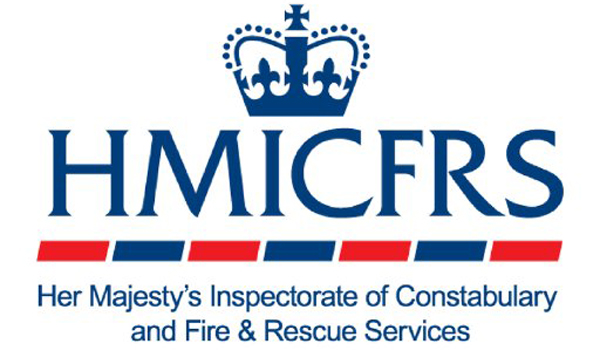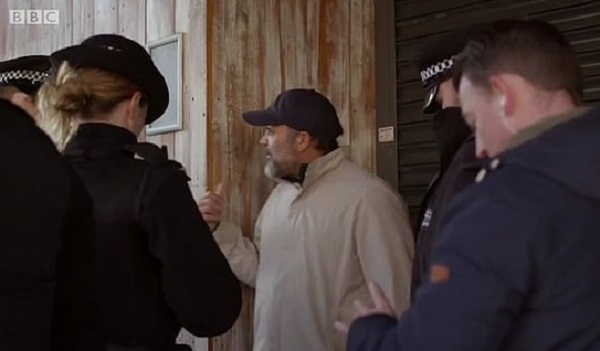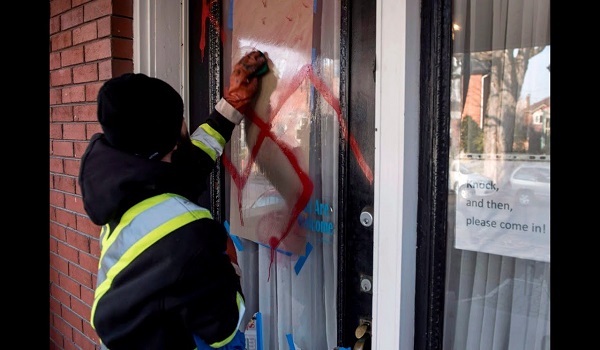Nottinghamshire not recording 12.7 per cent of reported crimes
Nottinghamshire Police is “still failing victims of crime” according to new reports on crime data integrity.
Her Majesty’s Inspectorate of Constabulary and Fire & Rescue (HMICFRS) has published reports today (October 2) examining the crime recording of Nottinghamshire Police, Surrey Police and Cheshire Constabulary as part of its rolling inspection programme.
HMICFRS’s overall judgement of Nottinghamshire Police was that it ‘requires improvement’ and estimated that the force failed to record 13,800 reported crimes each year.
The force particularly failed at recording reports of domestic abuse and that “officers and staff do not fully understand and apply the crime-recording rules when dealing with crimes such as harassment, malicious communications, common assault and public order offences.”
The inspectorate audited 1,352 crimes, 346 to be crimes related to domestic abuse. Of these 78 were not recorded; consisting of 59 violent crimes, one sexual crime and 18 other crimes.
It said “We found no clear evidence or rationale as to why they were not recorded as crimes.”
However, the report did identify several areas the force had improved in since it was last inspected in 2014 for crime data integrity including:
- Improved the supervision of out-of-court disposals;
- Developed and provided crime-recording training for officers, supervisors and staff involved in making crime-recording decisions;
- High levels of recording accuracy for reported sexual offences;
- Good crime-recording arrangements in respect of modern slavery crimes.
The report recommended the force take steps to address gaps in its systems and processes for identifying and recording all reports of violent crimes and ensure that adequate supervision is applied to all crime-recording decisions made by officers and staff.
Deputy Chief Constable Rachel Barber said: “Since the inspection in May, we have continued to make progress to address the accuracy of our data. We have changed our domestic abuse policy and procedure, to make a risk assessment mandatory in all domestic abuse cases. This removes any ambiguity and ensures a consistent response when supporting victims.
“Unfortunately, we cannot remove human error from daily business in what is a very complex area, but we are determined to continue to raise standards and get consistency across all of our officers and staff when recording crime. We have invested in a NCRS (National Crime Recording Standards) compliance team, which supports our control room and increases crime-recording timeliness and compliance.
“We have an accredited Force Crime Registrar and we are taking steps to identify and address gaps in our systems and processes for identifying and recording all reports of violent crime. We have since reviewed all of the crimes that were not recorded and have confirmed they are low-level offences, such as public order, or no injury assaults where in many cases victims did not wish the police to take formal action and while there were no serious violence offences that were missed, we are committed to ensuring we are compliant moving forward.”
Meanwhile, Cheshire Constabulary was judged to be ‘outstanding’ by HMICFRS. It found that the force records 96.4 percent of all reported crimes, which is a huge improvement on its last inspection in 2017 when it recorded just 83.6 per cent.
This means that the force recorded an additional 11,500 crimes for the year covered by the re-inspection audit period.
HMICFRS noted that in the previous inspection Cheshire Constabulary was experiencing staff shortages within the Force Contact Centre (FCC), which prevented it from implementing crime recording at first point of contact. By the end of 2018, it is expected for the FCC to be fully staffed, further improving its rates of crime data integrity.
The report commended the comprehensive mapping of the force’s crime-recording processes, which ensured it has a detailed understanding of all the channels through which it receives reports of crime.
The high crime data integrity may be linked to officers and staff’s clear understanding of their roles and responsibilities in relation to crime recording; and the comprehensive training they received, the inspection report suggested.
Acting Deputy Chief Constable Darren Martland said: “We are very pleased with the grade of ‘outstanding’, which the Constabulary has achieved by placing a significant emphasis on improving crime recording. We have provided training for our staff and introduced new procedures to ensure that crimes are investigated, support is provided to victims and crimes are recorded accurately.
“In addition to providing a better service for victims, improvements in crime recording have led to a better understanding of crime and the demands placed on the Constabulary.”
Surrey Police emerged as ‘good’ overall. Of note was its recording of nearly every crime where young people take and share indecent images of themselves.
The force also recorded many crimes within 24 hours as permitted by the rules, something both Cheshire Constabulary and Nottinghamshire Police struggled to do, according to the audits.
However, in the recording period, HMICFRS estimated that the force fails to record over 5,400 reported crimes each year. This represents a recording rate of 93 per cent, the under-recording was particularly high in sexual crimes, including rape.
The inspectorate noted in its report that failures generally occur when officers dealing with sexual offences fail to record other crimes disclosed during their investigations.
Deputy Chief Constable Gavin Stephens said: “I’m pleased with this grading from HMICFRS which places Surrey as one of the top forces of the 31 forces assessed so far and confirms we are heading in the right direction.
“However, there are areas where we have fallen short, and whilst the number of errors in our crime recording are small, any instance of us failing to record an offence accurately is one too many.
“Specifically, the inspectors highlighted a concern in the recording of rape and sexual crimes. This is particularly worrying due to the nature of these crimes. However, I want to reassure the public and victims of these offences that in all cases records existed, but there were instances where a misunderstanding of the complex recording rules resulted in a mis-classification of the crime or instances where reports of multiple crimes meant records should have been separated. We have not missed victims.”







